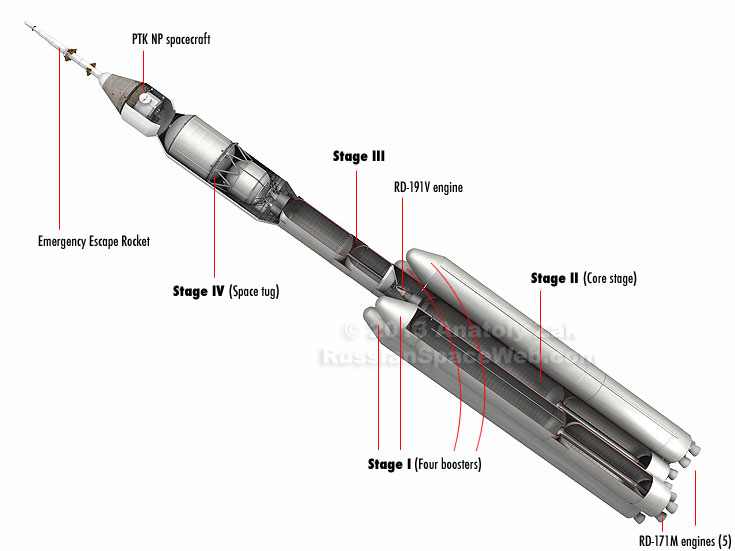Carrier rocket with new series manned spacecraft installed on launch pad
The blastoff of the Soyuz-FG carrier rocket with the Soyuz MS transport manned spacecraft is scheduled for 04:36 am, Moscow time on July 7

BAIKONUR, July 4. /TASS/. The Soyuz-FG carrier rocket with the Soyuz MS manned spacecraft, the first in a new series, is installed on the launch pad of the Baikonur Cosmodrome (Kazakhstan), the press service of the Russian State Space Corporation Roscosmos told TASS on Monday.
"In accordance with the decision of the state commission, the Soyuz-FG carrier rocket with the Soyuz MS transport manned spacecraft has been rolled out from the assembly and testing facility to the launch pad," the Roscosmos source said.
Read also
Russia has no plans to deliver US astronauts to ISS after 2018 — official
The state commission is planned to meet on July 6 to approve on the results of the training of cosmonauts and astronauts the main crew of the next mission to the International Space Station (ISS).
The blastoff of the Soyuz-FG carrier rocket with the Soyuz MS transport manned spacecraft is scheduled for 04:36 am, Moscow time on July 7.
The international ISS crew trio - Commander Anatoli Ivanishin of Russia’s Roscosmos and Flight Engineers - Japanese astronaut Takuya Onishi and NASA astronaut Kate Rubins - finished their last training operations at the Baikonur Cosmodrome and are now having a rest enjoying ahead of their planned liftoff on Thursday.
Soyuz MS introduces a number of systems upgrades on the trusted Russian spacecraft, primarily focused on the vehicle’s navigation, control and communications system. The modified systems were tested in an operational environment aboard a pair of Progress cargo missions starting in December 2015 to fully check out all new components in space before committing to a crewed flight.
The MS modification replaces the old Kvant radio system of Soyuz with a Unified Command and Telemetry System and the new communications system enables Soyuz to use the Luch data relay satellites to keep in contact with mission control for the majority of its treks around the planet.
More:
http://tass.ru/en/science/886239
The blastoff of the Soyuz-FG carrier rocket with the Soyuz MS transport manned spacecraft is scheduled for 04:36 am, Moscow time on July 7

BAIKONUR, July 4. /TASS/. The Soyuz-FG carrier rocket with the Soyuz MS manned spacecraft, the first in a new series, is installed on the launch pad of the Baikonur Cosmodrome (Kazakhstan), the press service of the Russian State Space Corporation Roscosmos told TASS on Monday.
"In accordance with the decision of the state commission, the Soyuz-FG carrier rocket with the Soyuz MS transport manned spacecraft has been rolled out from the assembly and testing facility to the launch pad," the Roscosmos source said.
Read also
Russia has no plans to deliver US astronauts to ISS after 2018 — official
The state commission is planned to meet on July 6 to approve on the results of the training of cosmonauts and astronauts the main crew of the next mission to the International Space Station (ISS).
The blastoff of the Soyuz-FG carrier rocket with the Soyuz MS transport manned spacecraft is scheduled for 04:36 am, Moscow time on July 7.
The international ISS crew trio - Commander Anatoli Ivanishin of Russia’s Roscosmos and Flight Engineers - Japanese astronaut Takuya Onishi and NASA astronaut Kate Rubins - finished their last training operations at the Baikonur Cosmodrome and are now having a rest enjoying ahead of their planned liftoff on Thursday.
Soyuz MS introduces a number of systems upgrades on the trusted Russian spacecraft, primarily focused on the vehicle’s navigation, control and communications system. The modified systems were tested in an operational environment aboard a pair of Progress cargo missions starting in December 2015 to fully check out all new components in space before committing to a crewed flight.
The MS modification replaces the old Kvant radio system of Soyuz with a Unified Command and Telemetry System and the new communications system enables Soyuz to use the Luch data relay satellites to keep in contact with mission control for the majority of its treks around the planet.
More:
http://tass.ru/en/science/886239




 sepheronx
sepheronx

